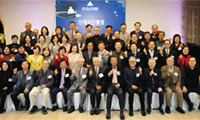▶ GRAHAM BOWLEY - ESSAY
As President Obama recalculates how to fight in Afghanistan, he might bear this in mind: The public has held up an hourglass before every recent wartime president so he can measure its patience. There is only one sure way to stop the sand from running out: Deliver victory, or at least show progress toward it.
“Public opinion has always been a concern in all of America’s wars, no matter how long or how short, or how noble or how ignoble they were perceived, said Peter D. Feaver, a professor of political science at Duke University in Durham, North Carolina, who served on President George W. Bush’s National Security Council. “It is always in play.
Sometimes public opinion can start wars and dictate their course. At other times, wars are forced on a country. But once they are joined, the hunger for progress in battle has to be satisfied.
In the first year of American involvement in World War II, Britain and America were at odds over where to strike first. Winston Churchill and his military advisers argued against American officers who wanted to invade France in 1943, saying it was still too risky; they preferred attacking in the Mediterranean. President Franklin D. Roosevelt yielded, but felt an offensive against Germany was needed. So together he and the British set in motion the North Africa landings of November 1942. After a year of dispiriting losses in the Pacific, the landings allowed Roosevelt to say the fight was now being taken to the Axis. Americans could - and did - rally to that news.
Earlier this decade, the same impatience for action and a desire to see American troops on the ground was tangible in the weeks after the September 11, 2001, attacks on New York and Washington. The speedy, and much-welcomed, involvement of Americans alongside Northern Alliance rebels against the Taliban in Afghanistan followed, and those forces quickly drove the Taliban from Kabul.
But there was no decisive victory against Osama bin Laden or his lieutenants. A lack of easy targets and eye-catching victories in Afghanistan became a problem that has festered and now confronts a new president.
Without early victory, all is not lost, of course; but public opinion has to be managed. Churchill is an example of a leader who overcame deep unpopularity and had to fight for his political survival. What saved him was his gift for communicating with his people. Britons rallied to him, at first, after Dunkirk and during the Battle of Britain, but he then faced disasters in Greece, Singapore and elsewhere before America joined the war.
“Like President Obama, he relied on his oratory, said Andrew Roberts, a British historian and author of “Masters and Commanders. “Everyone listened to his 9 p.m. wireless broadcasts on the BBC. His speech on 9/11/1941 was an absolute tour de force.
But in the end, progress on the battlefield was what counted. From the British point of view, according to Mr. Roberts, it was only after the Soviets began to push the invading Germans back that Britons could see a reasonable path to victory - by bombing German cities, diverting the Luftwaffe and providing cover for Russia’s advance, he said.
This aligns with the findings of Mr. Feaver and Christopher Gelpi, who have studied the effects of war on public opinion. They concluded that while rising financial costs and casualties sap morale, a lack of clear progress is what really depresses support - and a clear victory is what lifts it up.
Still, a long war can sometimes continue even after the public mood darkens, if it is seen as unavoidable. The Korean war, for example. According to JohnHarper, a professor of history at Johns Hopkins University in Baltimore, Maryland, the justification for the war was clear: “The North had attacked, the Soviets were behind it and we went to the rescue. Consider what the public put up with in that case: a war that was highly volatile in the first year, became depressingly static for two more, and was then followed by six decades of a fragile armistice that American troops are still on guard to ensure.
스마터리빙
more [ 건강]
[ 건강]이제 혈관 건강도 챙기자!
[현대해운]우리 눈에 보이지 않기 때문에 혈관 건강을 챙기는 것은 결코 쉽지 않은데요. 여러분은 혈관 건강을 유지하기 위해 어떤 노력을 하시나요?
 [ 건강]
[ 건강]내 몸이 건강해지는 과일궁합
 [ 라이프]
[ 라이프]벌레야 물럿거라! 천연 해충제 만들기
 [ 건강]
[ 건강]혈압 낮추는데 좋은 식품
[현대해운]혈관 건강은 주로 노화가 진행되면서 지켜야 할 문제라고 인식되어 왔습니다. 최근 생활 패턴과 식생활의 변화로 혈관의 노화 진행이 빨라지고
사람·사람들
more
[송년행사 화보] “ ‘손에 손잡고’ 한 해 마무리… 건강과 행복 기원”
전주고·북중남가주 전주고·북중 총동창회(회장 백규종)의 2025년 정기총회 및 송년회가 지난 14일 LA 작가의 집에서 성황리에 열렸다. 이날…

[송년행사 화보] “한 해를 마무리하며… 화기애애한 송년의 순간들”
LA 러너스클럽LA 러너스클럽(회장 김두병)은 13일 작가의 집에서 80여명의 회원과 가족이 참석한 가운데 송년회를 마쳤다. 2007년 창립된…
[송년행사 화보] “웃음과 감사 가득 ‘훈훈’… …
한국학교총연합회미주한국학교총연합회(회장 이영숙)가 주최한 제43회 장기 근속교사 포상 및 송년의 밤 행사가 140여명의 교사들이 참석한 가운데…
[송년행사 화보] “친구야 반갑다… 선배님들 모두…
경남중고경남중·고등학교 남가주 동창회(회장 예해덕)는 지난 6일 송년회를 열고 동문 및 가족 60여 명이 참석한 가운데 끈끈한 우정을 확인했다…
송년행사 게시판
월남전 참전자회월남전 참전자회 캘리포니아지회(회장 김종식)가 오는 17일(수) 오전 11시 LA 한인타운 해피음악원(2426 W. 8th St…
많이 본 기사
- ‘사문서위조’ 국제골프학교 추진 박세리 부친 징역형 집유
- ESTA(전자허가제) 심사 강화에 관… 1
- 미, 푸틴이 우크라 종전안 거부하면 그림자선단 제재 고려
- 운명의 날…김건희·권성동·윤영호 모두 1월 28일 선고
- 네포베이비 잔혹극…부모 살해한 할리우드 금수저에 최대 사형
- “나래바는 절대 가면 안 돼”..조인성→정해인, 박나래 초대 거절했다
- 에어 프레미아 취항, 기대 컸나
- 시드니 총기난사범, 인도 출신 이민자…15명 살해 등 혐의 기소
- 공화의원 4명 당론 거부…野 ‘건보 보조금 연장안 표결’에 찬성
- [연말 피싱 사기 주의보] ‘소셜번호 정지’ 메일 기승
- 팰팍 최대규모 주상복합단지 들어서나 1
- 뉴욕한인 팔레스타인 활동가 체포
- 트럼프, 오늘 대국민 연설 지지율 하락속 메시지 주목
- ‘음주 뺑소니’ 김호중, 성탄절 특사 물거품.. “죄질 불량” 판단
- 김태원, ‘사망설’ 가짜뉴스에 입 열었다.. “그냥 넘기려 했는데 피곤해져”
- 박세리 “선수 시절, 계속 연애..결혼 때문에 헤어져”
- “동지 팥죽도 드시고 달력도 받아가세요”
- 호주서 제자 일가 살해 한인 가석방 없는 종신형 선고
- “비주얼 천재 맞네”..심형탁 아들 하루, 기저귀 광고 현장서 존재감 폭발
- “글로벌 네트워크 재확인 뜻깊은 자리”
- 주말에 LA·OC 전역서 DUI 체크포인트
- 노영찬 교수 국민훈장 목련장 수훈
- VA 한인 2세, 드라마 주연 맡아
- 임창정, 18세 연하 ♥서하얀에 또 반하겠네..우아한 연말 투샷
- 구글, ‘제미나이3플래시’ 출시… “속도 빠르지만 성능 희생 안해”
- [연말 피싱 사기 주의보] “보이스피싱 이렇게 당한다”
- 벨라음악재단, 유네스코 협약 20주년 기념 공연
- 한인마라톤클럽 송년회
- 자바시장 강도 살인 용의자에 7만5천불 현상금
- 샤이니 키, 무면허 ‘주사이모’에 ‘불법 진료’ 인정.. ‘나혼산’ 하차한다
- LA·OC 개스값 하락세 ‘희소식’
- 글로벌 어린이재단 워싱턴지부, 정기모임
- VA·MD 등 21개주, 우버 상대 소송 제기
- “사고 직후 대응이 보상 좌우한다”
- 동부낚시회 연말모임·회장 이취임식
- “산타 복장 입고 태권도 위상 드높여”
- 워싱턴한인회, 메이슨 디스트릭 경찰서에 3천달러
- 홍익대학교 동문회 총회 · 송년회
- ‘송종국 딸’ 송지아, 메인 스폰서 확보→프로골퍼 입단식..母 박연수 감격한 기쁜 소식
- “’트럼프 눈독’ 파나마항 매각, 더 큰 중국 암초 만났다”
- 흥사단 총회…박대영 지부장 선출
- 페어팩스 60대 남성, 구치소 수감된 날 ‘급사’
- 한인 은행권 확장경쟁 치열… 직원 2분기 연속 증가
- 연말 1억2천만명 이동
- “장재현 감독 영화 보이콧”.. ‘마약 투약’ 유아인 복귀설 후폭풍
- 칠레에서 영국까지, 27년을 걷다
- 대한항공, 비상구 조작에 ‘무관용’
- “손흥민, 일찍 이적했으면 MVP 후보” MLS 뒤흔든 이적 ‘첫손’
- 장봉준 차기회장 선출
- 롯데, 뉴욕호텔 부지 5억달러 인수
1/5지식톡

-
 ☝️해외에서도 가능한 한국어 선생님…
0
☝️해외에서도 가능한 한국어 선생님…
0이 영상 하나면 충분합니다!♥️상담신청문의♥️☝️ 문의 폭주로 '선착순 상담'만 진행합니다.☎️ : 02-6213-9094✨카카오톡ID : @GOODEDU77 (@골뱅이 꼭 붙여주셔야합니다…
-
 테슬라 자동차 시트커버 장착
0
테슬라 자동차 시트커버 장착
0테슬라 시트커버, 사놓고 아직 못 씌우셨죠?장착이 생각보다 쉽지 않습니다.20년 경력 전문가에게 맡기세요 — 깔끔하고 딱 맞게 장착해드립니다!장착비용:앞좌석: $40뒷좌석: $60앞·뒷좌석 …
-
 식당용 부탄가스
0
식당용 부탄가스
0식당용 부탄가스 홀세일 합니다 로스앤젤레스 다운타운 픽업 가능 안녕 하세요?강아지 & 고양이 모든 애완동물 / 반려동물 식품 & 모든 애완동물/반려동물 관련 제품들 전문적으로 홀세일/취급하는 회사 입니다 100% …
-
 ACSL 국제 컴퓨터 과학 대회, …
0
ACSL 국제 컴퓨터 과학 대회, …
0웹사이트 : www.eduspot.co.kr 카카오톡 상담하기 : https://pf.kakao.com/_BEQWxb블로그 : https://blog.naver.com/eduspotmain안녕하세요, 에듀스팟입니다…
-
 바디프렌드 안마의자 창고 리퍼브 세…
0
바디프렌드 안마의자 창고 리퍼브 세…
0거의 새제품급 리퍼브 안마의자 대방출 한다고 합니다!8월 23일(토)…24일(일) 단 이틀!특가 판매가Famille: $500 ~ $1,000Falcon: $1,500 ~ $2,500픽업 & 배송직접 픽업 가능LA…
케이타운 1번가
오피니언
 정숙희 논설위원
정숙희 논설위원칠레에서 영국까지, 27년을 걷다
 마크 A. 시쎈 / 워싱턴포스트 칼럼니스트
마크 A. 시쎈 / 워싱턴포스트 칼럼니스트 [마크 A. 시쎈 칼럼] MAGA와 ‘힘에 바탕한 외교정책’
 김동찬 시민참여센터 대표
김동찬 시민참여센터 대표 [미국은 지금] 위기의 시대, 사회안전망은 최후의 방어선이다
 이현숙 수필문학가협회 이사장
이현숙 수필문학가협회 이사장 [수요 에세이] 어른들의 레고로 불리는 집
 한영일 / 서울경제 논설위원
한영일 / 서울경제 논설위원[만화경] 애피타이저가 ‘한끼’ 인 시대
 노세희 부국장대우·사회부장
노세희 부국장대우·사회부장 커뮤니티 재단과 한인사회의 미래
 민경훈 논설위원
민경훈 논설위원햄닛과 햄릿, 그 죽음에 대한 명상
 한형석 사회부 부장대우
한형석 사회부 부장대우 연말, 사기범들의 최대 성수기
 정유환 수필가
정유환 수필가 [화요칼럼] 크리스마스 트리의 추억
1/3지사별 뉴스

팰팍 최대규모 주상복합단지 들어서나
뉴저지 팰리세이즈팍 사상 최대 규모의 초고층 주상복합단지가 한인 개발업체에 의해 추진되고 있는 것으로 알려지면서 관심이 집중되고 있다. 팰팍…
연말 1억2천만명 이동

에어 프레미아 취항, 기대 컸나
에어 프레미아의 워싱턴 덜레스 국제공항과 인천국제공항간 취항이 확정된 가운데(본보 15일자 A1면), 에어 프레미아 항공권 가격이 당초 기대에…
VA·MD 등 21개주, 우버 상대 소송 제기

캘리포니아 플라스틱백 퇴출 앞두고… 대형 체인, 종이봉투로 속속 전환
내년 1월 1일부터 캘리포니아 전역의 마켓과 식료품점에서 플라스틱 봉투가 완전히 사라진다. 개빈 뉴섬 주지사가 서명한 SB 1053 법안이 본…
‘우미노시즈쿠 후코이단’ 감사 이벤트

오늘 하루 이 창 열지 않음 닫기 



















































.png)


댓글 안에 당신의 성숙함도 담아 주세요.
'오늘의 한마디'는 기사에 대하여 자신의 생각을 말하고 남의 생각을 들으며 서로 다양한 의견을 나누는 공간입니다. 그러나 간혹 불건전한 내용을 올리시는 분들이 계셔서 건전한 인터넷문화 정착을 위해 아래와 같은 운영원칙을 적용합니다.
자체 모니터링을 통해 아래에 해당하는 내용이 포함된 댓글이 발견되면 예고없이 삭제 조치를 하겠습니다.
불건전한 댓글을 올리거나, 이름에 비속어 및 상대방의 불쾌감을 주는 단어를 사용, 유명인 또는 특정 일반인을 사칭하는 경우 이용에 대한 차단 제재를 받을 수 있습니다. 차단될 경우, 일주일간 댓글을 달수 없게 됩니다.
명예훼손, 개인정보 유출, 욕설 등 법률에 위반되는 댓글은 관계 법령에 의거 민형사상 처벌을 받을 수 있으니 이용에 주의를 부탁드립니다.
Close
x